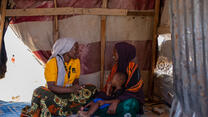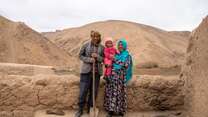The “Advisory Model'' is an innovative finance concept developed by the IRC with the support of DG-ECHO whereby humanitarians leverage their unique and contextually-relevant skill sets to advise investors in order to enhance the social impact of a project. “Investors'' can be multilateral development banks (MDBs), development finance institutions (DFIs), or private sector investors, from startups and venture capital to private equity. IRC has developed a range of “Advisory Model Partnerships'' in fragile contexts, addressing challenges from wastewater and infrastructure to climate financing and economic development.
The problem: The humanitarian sector faces a funding gap: 67% of need, or $41B, went unfunded in 2023, and 88% of all humanitarian funding comes from 10 government donor budgets. Current funding frameworks are unsustainable, and more must be done to leverage existing grant funding to be catalytic. By developing partnerships around investments in fragile and conflict affected communities, investors and humanitarians can utilise different - but potentially complementary - skill sets to close this critical funding gap and drive more investments to these communities.
Theory of change: IF humanitarian actors are able to provide advisory services rooted in client-centred, localised expertise to investors financing projects in fragile/conflict settings THEN the humanitarian impact of investments on crisis-affected populations will increase AND risks to investments will decrease, therefore incentivising further such investments.
Benefits of the Advisory Model: Partnerships between humanitarians, MDBs, DFIs and private sector investors can:
- Ensure existing funding reaches the intended communities.
- Bridge the gap between business/ investment and the development, humanitarian sectors.
- Generate more funding, including for priorities like climate finance for frontline communities.
- Better inform community engagement and circumstances on the ground: humanitarians know how to reach fragile communities and bring deep expertise working in conflict zones.
- Leverage private money and public dollars in innovative ways to ensure social impact and inclusion goals are achieved
By tapping humanitarians as consultants, and leveraging investment expertise for humanitarian goals, the Advisory Model is a powerful approach to enhance the social impact of investments in conflict zones.
These partnerships can take a wide variety of shapes and approaches – the key is that institutions across sectors need to try, build and scale them.
How we’re piloting the model: IRC currently has over a half dozen Advisory Model partnerships in the pipeline, including projects in collaboration with:
- The European Bank for Reconstruction and Development (EBRD), advising on a €65 million wastewater infrastructure investment in West Irbid, Jordan, demonstrating that humanitarians have unique, specialised knowledge that can enable investors to make more inclusive and sustainable decisions around investments in fragile contexts. Read the case study.
- Flat6Labs, advising on an innovation & entrepreneurship platform to grow the startup ecosystem in the Middle East. Read the case study.
- AquaPoro is a Jordanian startup developing an innovative drinking water technology that is cheaper than IRC’s current procurement. Together, IRC and AquaPoro are piloting a ‘procurement as investment’ pilot, providing IRC operations with a sustainable switch while ‘investing’ in innovative startup to stimulate innovation in the Jordanian economy. Read the case study.
To learn more about the Advisory Model or to partner with IRC, download our Advisory Model Partnership Playbook and Lessons Learned: Reflections on “Advisory Model” partnership between IRC-EBRD, or contact Ellen Brooks at Ellen.BrooksShehata@rescue.org.



